How a Chilean Academic is Responding to the Plastics Crisis at Home and Abroad
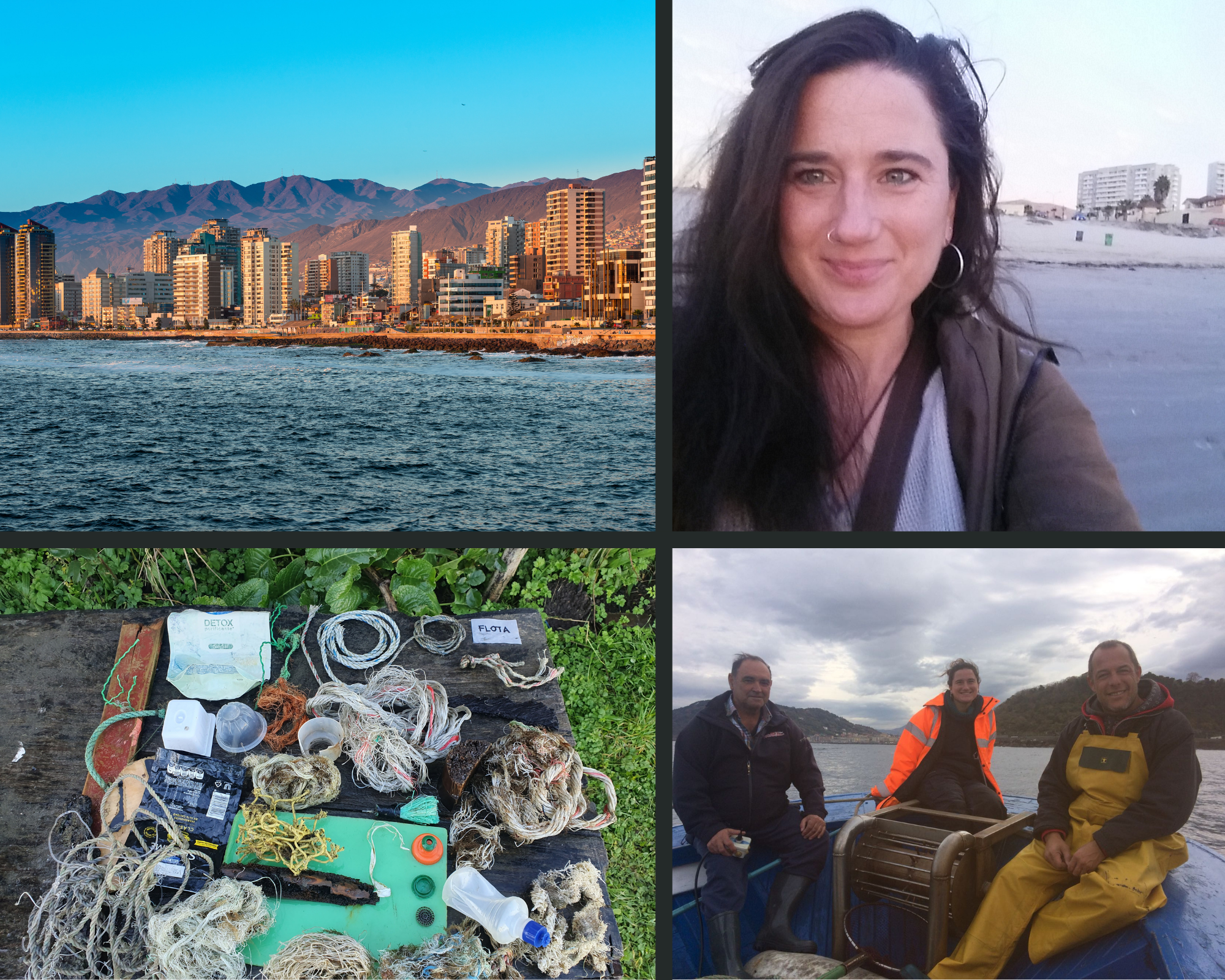
This is the first in a series of stakeholder interviews conducted by the OPLN to illustrate the range of stakeholder contributions to our Plastics Treaty Dialogues. We start with the view of an academic in Chile who has spent the last decade studying plastic pollution and advocating for solutions at home and abroad.
For clarity, OPLN divides interviews into three main catergories: (1) experiential statements, (2) positional viewpoints, and (3) learnings and insights.
Sabine Rech holds a postdoc position at Universidad Católica del Norte in Antofagasta. Since 2013, she has studied multiple aspects of the plastic waste crisis as it affects Chile.
- Sabine has participated in both of the Chile Country Dialogues on January 13th and March 29th, 2022, held by OPLN and Plastic Oceans Chile.
- This interview with OPLN was conducted in May and June 2022
What were your takeaways from Chile’s Plastics Dialogues?
In the OPLN Dialogues in Chile, the main topics were the expectations and apprehensions of the different actors with respect to the treaty. As a scientist and an academic, my main role is that of an independent researcher and observer. As such, the Dialogues were an important and maybe unique opportunity to get an insight and overview of the wide and complex range of actors involved in either the problem of or the solution to marine plastic pollution. On the one hand, both in the general sessions, but especially in the break-out sessions, I had the opportunity to meet various national citizen´s organizations and NGOs working to end plastic pollution, as well as local actors trying to cope with and reduce the pollution directly affecting them.
On the other hand, I also had the chance to meet lobbyists of the main industries causing plastic pollution, for example, The Coca-Cola Company, which is among the main ones responsible for ocean plastic pollution globally, and to understand how the interference of such high-impact multinational companies can obstruct the efforts of the broad front of local, national and international actors (usually with no or very little financial funds), fighting against plastic pollution.
Experiential - Experience in the Field
In my current research project, I’ve been sampling stranded plastics on beaches along the Chilean central and southern continental coast. This was an intense time as we found large amounts of litter which we picked up, counted, sorted, etc.
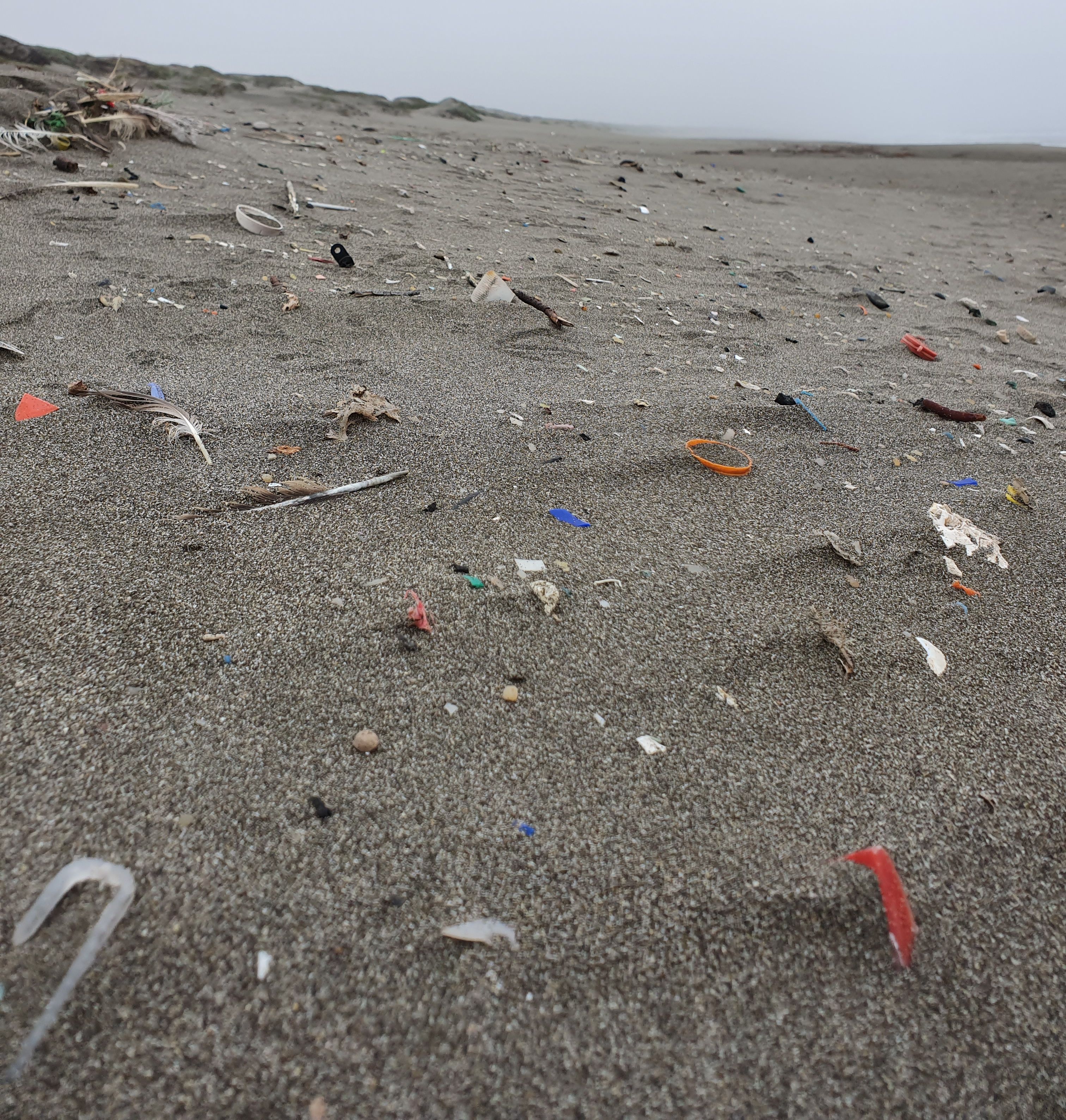
Chile is one of the pioneers of marine litter research, with studies on a diverse range of the problems´ aspects, including citizens´ perception, distribution, and stranding dynamics, impacts on marine biota and biogeography, among others. Apart from the strictly academic studies, of which there are many as well, we have the “cientificos de la basura”, a citizen science organization investigating marine litter with schoolchildren from all over Chile. Thereby we have been able to gain scientific data on research questions from the whole country and even on the oceanic Rapa Nui island. As the same methodology is used in every study site, the data are comparable, which allows us to detect regional/latitudinal patterns and differences.
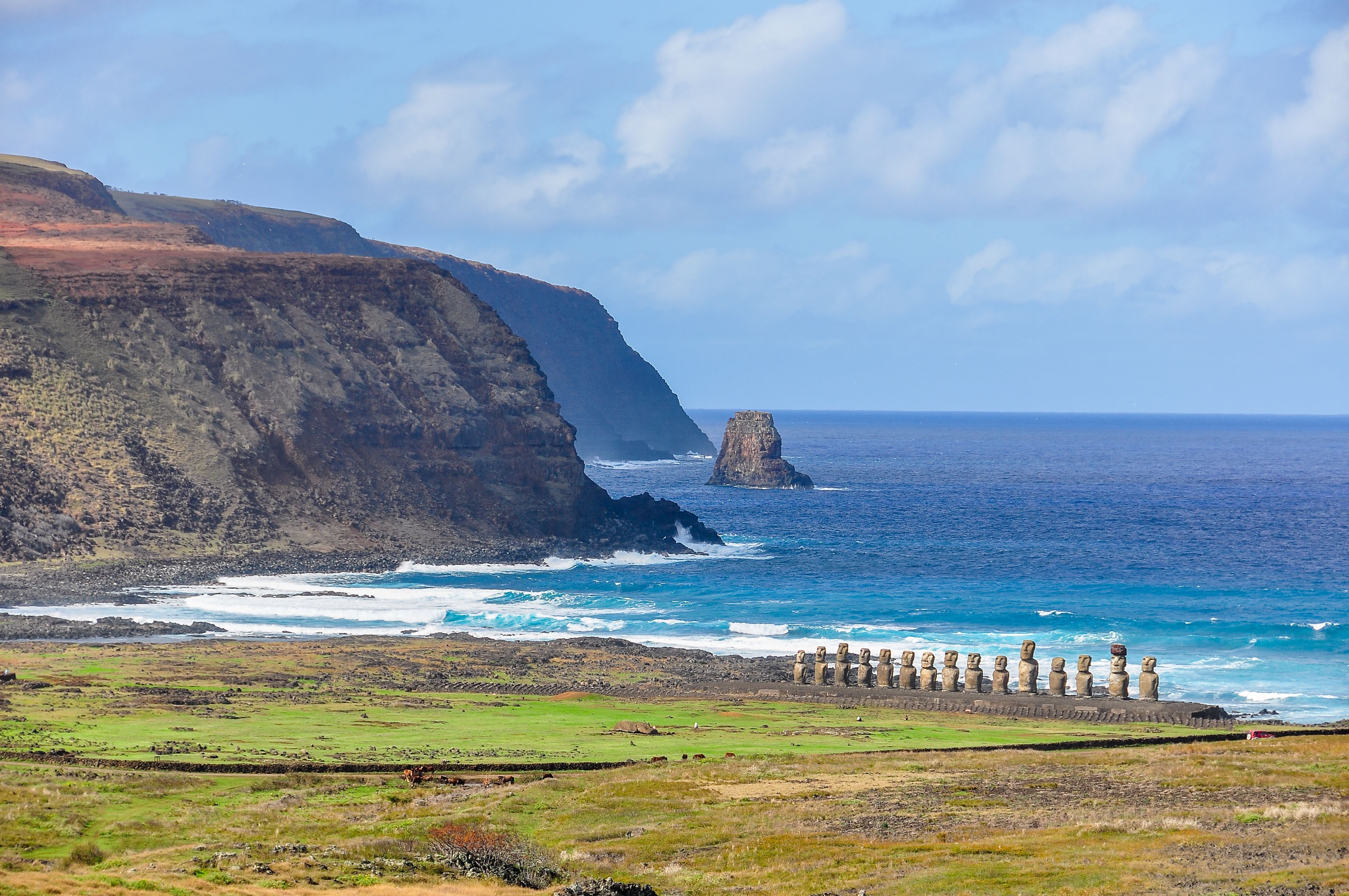
Moai statues line the coast of Rapa Nui (also Easter Island), Chile
Positional - Rech’s Perspective as a Stakeholder in the Plastic Crisis
I feel the last few years have been exciting in Chile. The problem of plastic pollution is, at its core, not an ecological, but a political problem and is only one of many in Chile´s (as well as the global) ecological crisis. As a legacy of the Chilean dictatorship (1973-1990), Chile follows a radically neo-liberal approach, in which political decisions have traditionally been based on economic considerations only and benefitted a rather small Chilean elite. Decisions on land use and economic activities have traditionally not considered long-term impacts on the local population and the natural resources they depend on and have often been taken against the protest of citizens and against the recommendation of scientists. While in many areas (e.g., water rights, deforestation, salmon farming) no major change seems to have occurred so far, concerning plastic pollution, things seem to be changing.
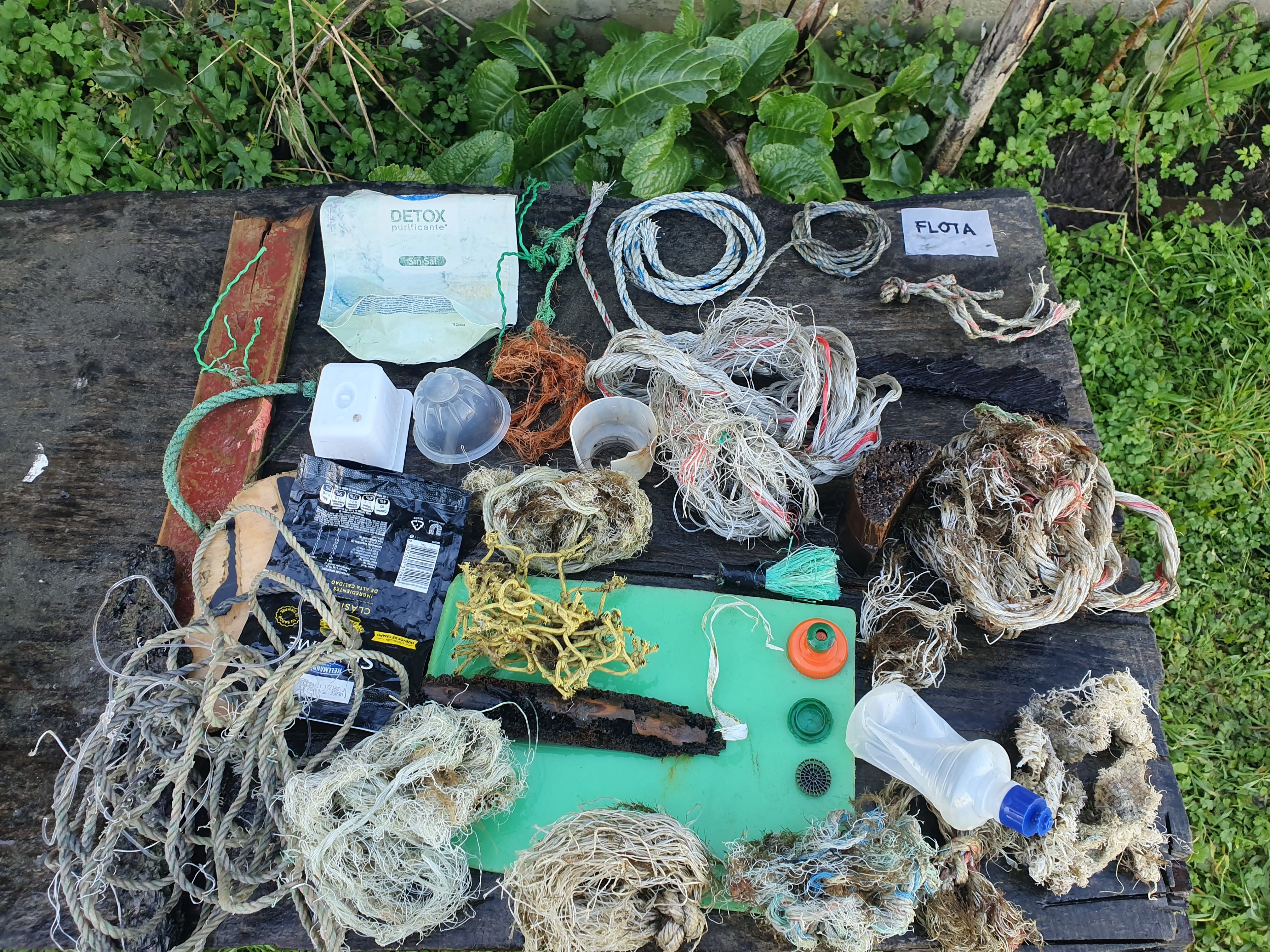
Plastic debris from one of Rech's field studies, sorted and organized.
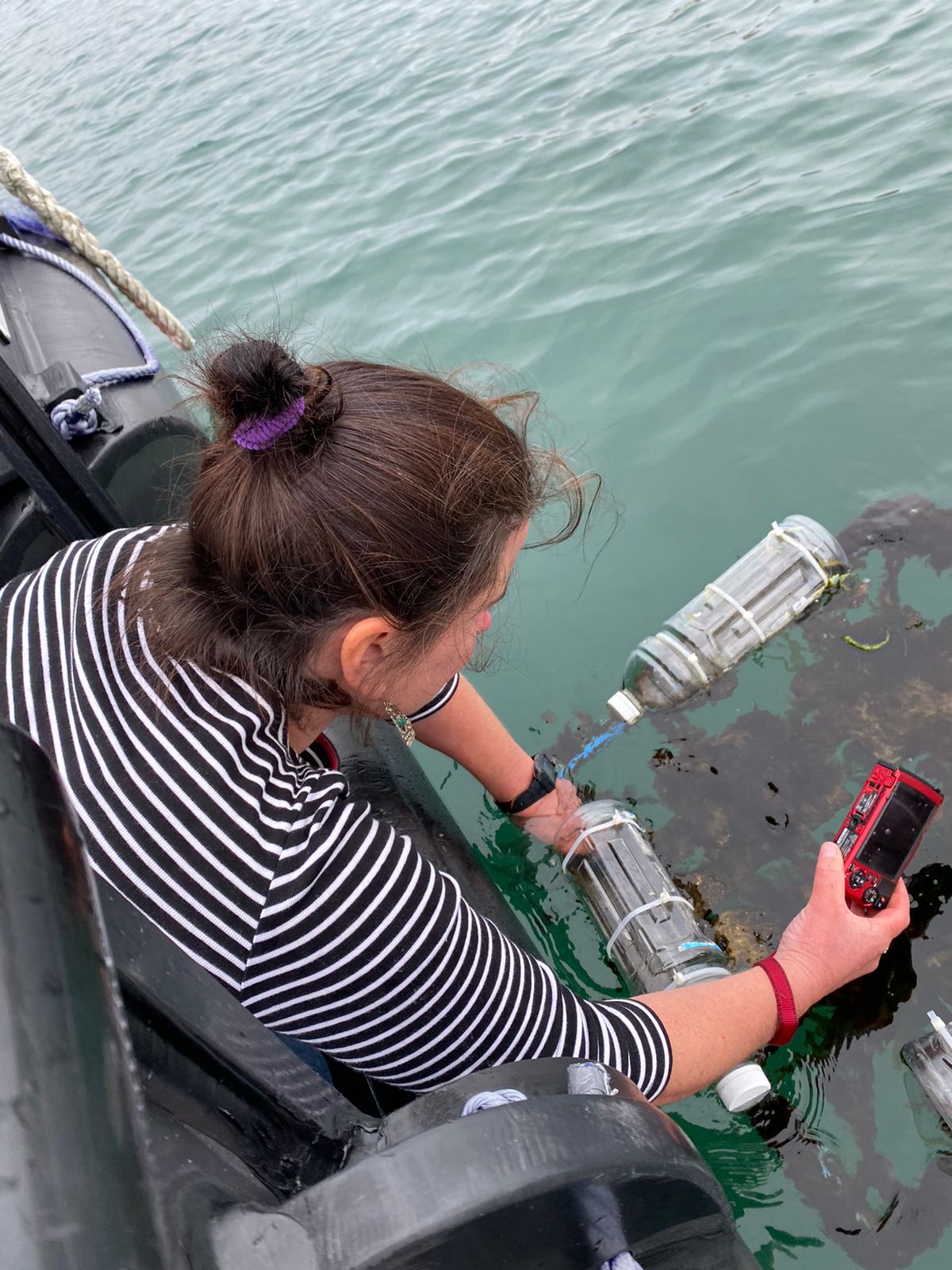
Past laws and international agreements have focused on prohibiting the dumping of trash. However, given that globally only a minuscule portion of plastic waste is recycled, almost all plastic litter will eventually be either incinerated or end up in the environment, even if it is disposed of “correctly” and legally. Now, finally, several new laws have been created to solve the problem at (or at least close to) its root. In 2018, a ban on single-use plastic bags entered into force (Law 21.123) and is now followed by legislation prohibiting several single-use plastic items (not a law yet). This law is not only a milestone because of the impact it will have on reducing plastic pollution, but also because it is the product of NGOs´ and citizens´ efforts and is based on hard data. In summary, it is my impression that, concerning the plastic problem, Chilean legislation is increasingly taking into account scientific evidence and citizens’ needs. We have also seen that lately the MMA (Chilean environmental ministry) is actively seeking scientific advice and collaboration, which I see as a very positive sign.
OPLN Question: Do you feel your work and that of your colleagues are being taken into account in negotiaitons at the national and international levels?
At the moment, I do feel that scientific evidence is taken more and more into account when it comes to plastic pollution in Chile. On an international level, I also have the impression that legislation to reduce plastic pollution is increasingly based on evidence, but it's a slow process. From an evidence-based point of view, it is clear that a drastic decrease in plastic production and consumption is needed to start and solve the problem, and current legislation increasingly acknowledges this.
However, there is potent industrial lobbyism from plastic producers and the companies relying on single-use plastics for commercializing their products, which often restrains or slows down any legislative efforts. An example is the ley REP (Law 20.920 on Waste Management, Extended Producer Responsibility and Promotion of Recycling), which was softened and strongly delayed due to industry interference. There is a very comprehensive and interesting paper by my colleagues, reviewing the context, problem, possible solutions, and barriers to these solutions (Urbina et al. 2020: A country's response to tackling plastic pollution in aquatic ecosystems: The Chilean way). If, in addition to our results on the amounts and impacts of plastic pollution, the findings of this paper on the societal and political context would be considered in the process of passing policies and legislation, we could take a big step ahead.
Factual - Learnings and Insights
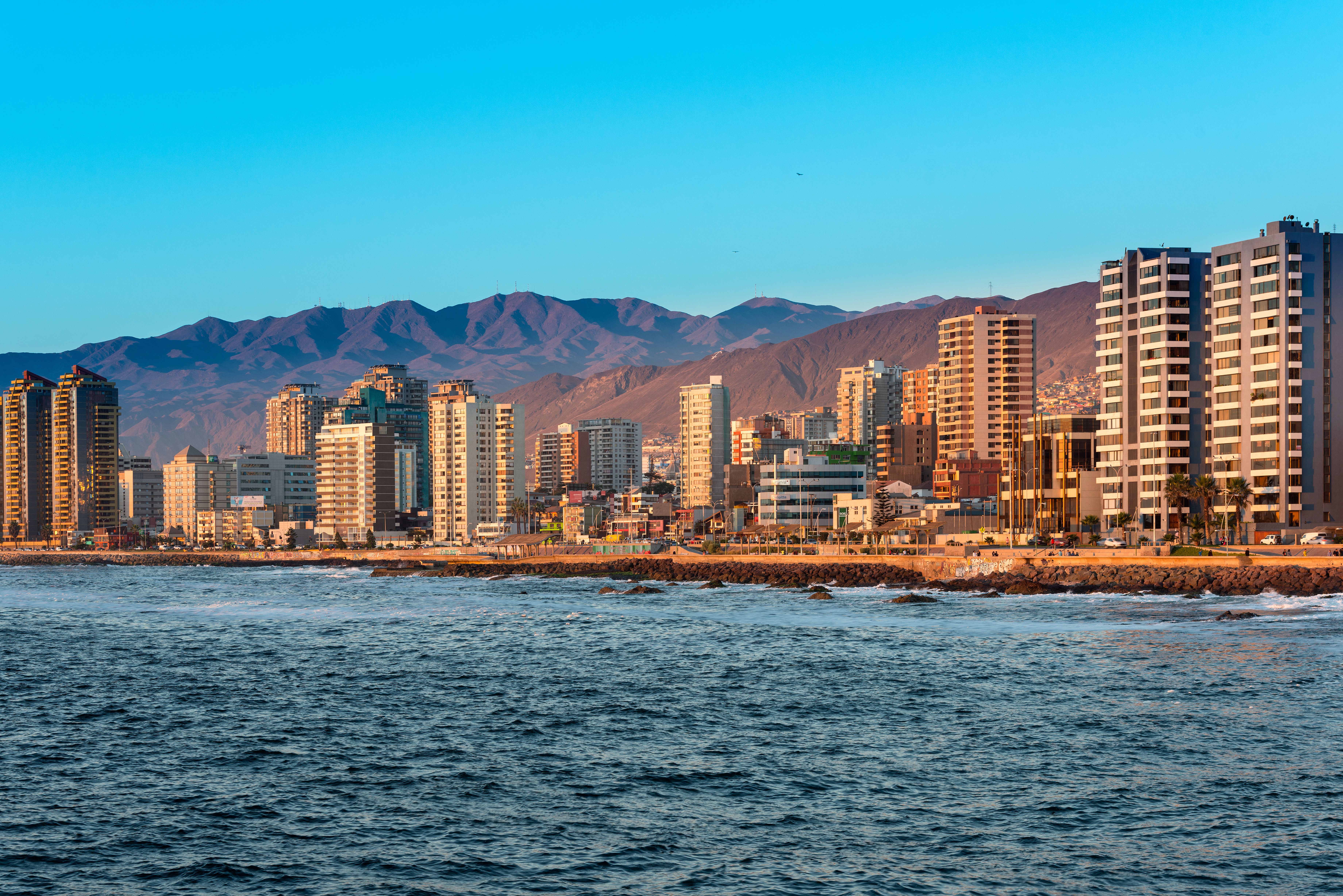
The coastline of Antofagasta, the capital city of one of Chile's northernmost regions.
OPLN Question: The results of a 2021 study you led “suggest that to adequately address this problem [anthropogenic trash in rivers] in Chile, prevention measures should be aimed at the identified local sources, using education, public policies, legislation, and enforcement.” Do you think the global treaty negotiations and the treaty itself can help with any of these measures - education, public policies, legislation, and enforcement? And if so, which specifically?
I think that one of the most important opportunities that the treaty might offer is in the field of legislation. It may offer the chance to regulate the responsibilities of multinational industrial actors causing major plastic pollution on a global level, by coordinated international legislation.
All in all, we have a relatively comprehensive understanding of the litter problem in Chile, not only about its sources, pathways and sinks, but also hard data on amounts, weight, and types of plastics found in the marine environment and on beaches. Such quantitative data and knowledge are crucial as a base for legislation. Many of the results, for example about distribution or stranding dynamics show general processes and phenomena that are valid on a global scale. This means that they are valuable information for international legislation.
OPLN will feature more stakeholder interviews from our global network in the coming weeks.
Interested in contributing an interview or article about solutions to the plastics crisis? Get in touch with henry@opln.org to see how you can get involved.